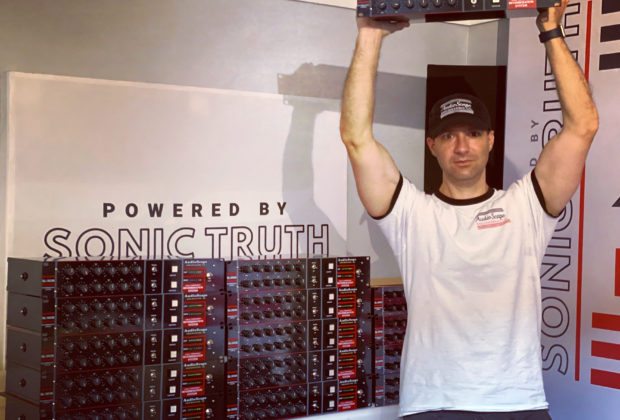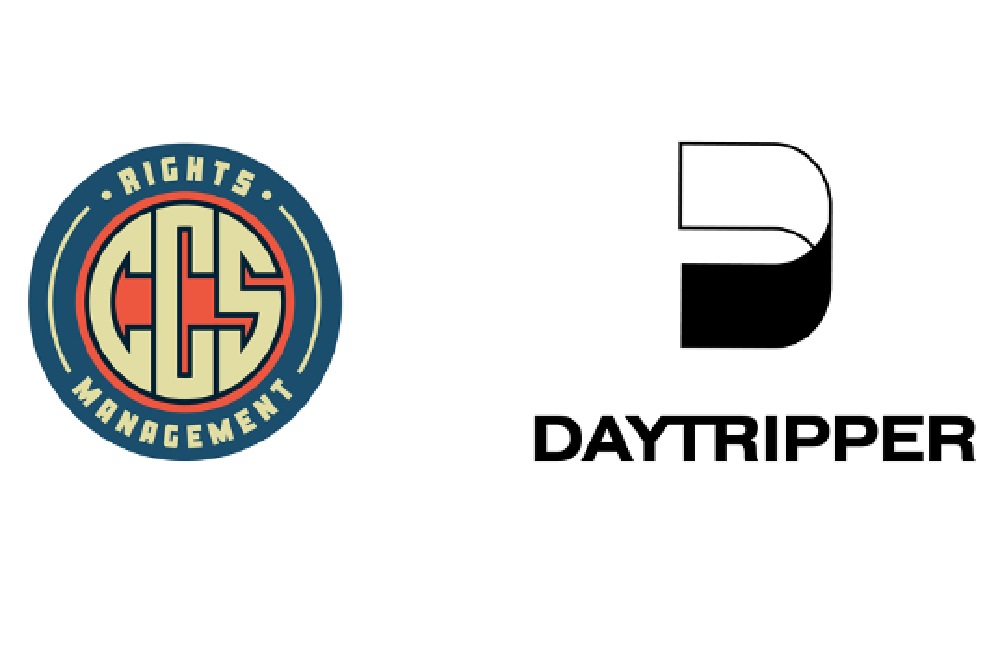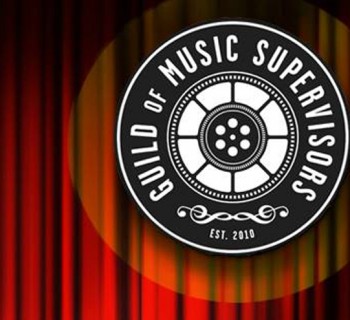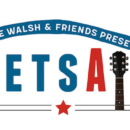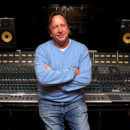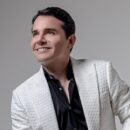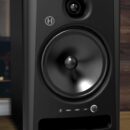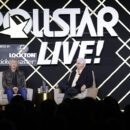Through my many years in the recording industry there have been a plethora of pro audio manufacturers that claim their products will make your mixes sound better. But there are few who really come through with the goods at the end of the day. That’s why I was excited to meet Chris Yetter, brainchild of AudioScape engineering, five years ago. I have many of his products and I have to say they are the real deal for capturing vintage tone and characteristics!
Yetter devotes hundreds of hours of research and development for all his products, putting blood sweat and tears into each creation. AudioScape is an incredible story as he started developing pro audio gear himself as a one-man operation. He has had so much success with sales that now the company boasts a small army of employees to manufacture the gear. He works out of his Daytona, FL location where on one side of the property stands his beautiful house and on the other side a large main building where products are tested before they are shipped. There are also two smaller buildings where employees painstakingly hand assemble each unit. On top of that Chris Yetter is a super nice guy, so I had to pick his brain on his creative passion.
Music Connection: What is the history of the company?
Chris Yetter: We officially started in 2016, but the journey began in the early to mid 2000’s. I cut my teeth building and breaking anything, I could in that period. The first thing I built was a fuzz pedal out of broken VCR parts. Then I graduated to raiding the local music store’s back room for broken gear and parts. Everything was fair game! It got a little crazy during those times.
MC: How did you get started engineering these wonderful pieces of pro audio gear?
Yetter: It was a long progression of necessity, need and drive. One thing I noticed when visiting studios was that the ones using boutique and vintage gear always seemed to be cranking out far superior sounding records versus the studios that relied on more standard name-brand equipment. It’s just something that always stuck with me, and these tools in general piqued my interest. So, I knew from those experiences this was what I wanted to do, build awesome studio gear. At the same time, I also knew high voltage was no joke. So, I started building lower voltage guitar pedals, eventually transitioning into higher voltage guitar amps and then finally vintage inspired audio gear.
MC: What was your biggest influence for designing your products?
Yetter: The desire to make the music we all listen to sound better. That is what truly drives this company; every product is rooted in that core idea. That is why I personally make gear; it’s certainly not for money. Our company margins reflect that sentiment as well;-)
We aim to recreate vintage pieces and capture what makes them sound special. So, we either have an original unit that we start with as the best representation, or I’ll build one with original parts and use that prototype as the model to make our product. If it's an original product, I'll simply try to make it sound like something I would want to use. It must serve an all-important need.
MC: How much research and development goes into your compressors like the V-COMP "6386 EDITION" MU COMPRESSOR from beginning to end?
Yetter: R&D is quite the process. The V Comp (6386 edition) was developed very similar to our Opto Comp.
I built a Point To Point Version with original parts and started with the mods in the original Gates manual, then just kept tweaking more. After we released the standard version in 2019, I kept modding even more and we released an expanded deluxe version this year.
Some people think if it's an old piece that this is an easy, mindless venture… In reality, it's a fun challenge and a constant balancing act. Designing an original piece can be easier at times, because you aren’t trying to find or substitute an obsolete vintage part; or trying to look for easter eggs in schematics in old manuals, etc. I’ve also found that to accurately recreate these pieces, the only way to do it with integrity is to build them in small batches with love and care and critically listen and test each one. That’s why we do it the way we do.
MC: What was your inspiration for the D-Comp Limiter, which I love?
Yetter: Simply put, I took every British Diode Comp and threw them in a blender, grabbing certain elements from each one that I liked. Then I pulled my hair out for three years obsessing over attack times and transformer ratios. Finally, I threw my hands in the air and declared it done.
MC: What new products do you have in the works that we can look forward to in the future?
Yetter: There are A LOT of great products in the works, ALWAYS! We recently debuted our whole 2021 new product lineup at Summer NAMM. Four new products in one year is no small feat for a boutique company building everything on site by hand. Yet to be released this year is amazing. An original designed 2 channel tube preamp that fills a huge void for all working studios. And of course, we are debuting an all-analog Spring reverb that sounds more “Plate-like,” with an equally tempered, handmade spring assembly. We make the spring assembly in these from scratch, which, to my knowledge, makes us the only manufacturer to do that in this century. •
Multi-Emmy Award winning guitarist-composer BRIAN TARQUIN, known for his Smooth Jazz instrumental radio hits, has 32 million streams on Pandora, Spotify & Apple Music. Tarquin is also known for having won three Emmys for “Outstanding Achievement in Music Direction and Composition for a Drama Series” and has been nominated for an Emmy six times. In 2019 he received a Global Music Gold Award for his release Orlando in Heaven for “Best Album.” Three years in a row (2016-2019) Tarquin received “Best Album of the Year” nominations from the Independent Music Awards for his releases: Guitars for Wounded Warriors, Orlando in Heaven, and Guitars for Veterans showcasing his guitar prowess alongside such world-class shredders as: Steve Morse, Larry Coryell, Billy Sheehan, Bumblefoot (Guns N’ Roses), Gary Hoey, Reb Beach (Whitesnake), Jeff Watson (Night Ranger), Chuck Loeb (FourPlay), Trey Gunn (King Crimson) to name a few. Tarquin has appeared on 40 releases, selling over 140,000 physical records in his career.

